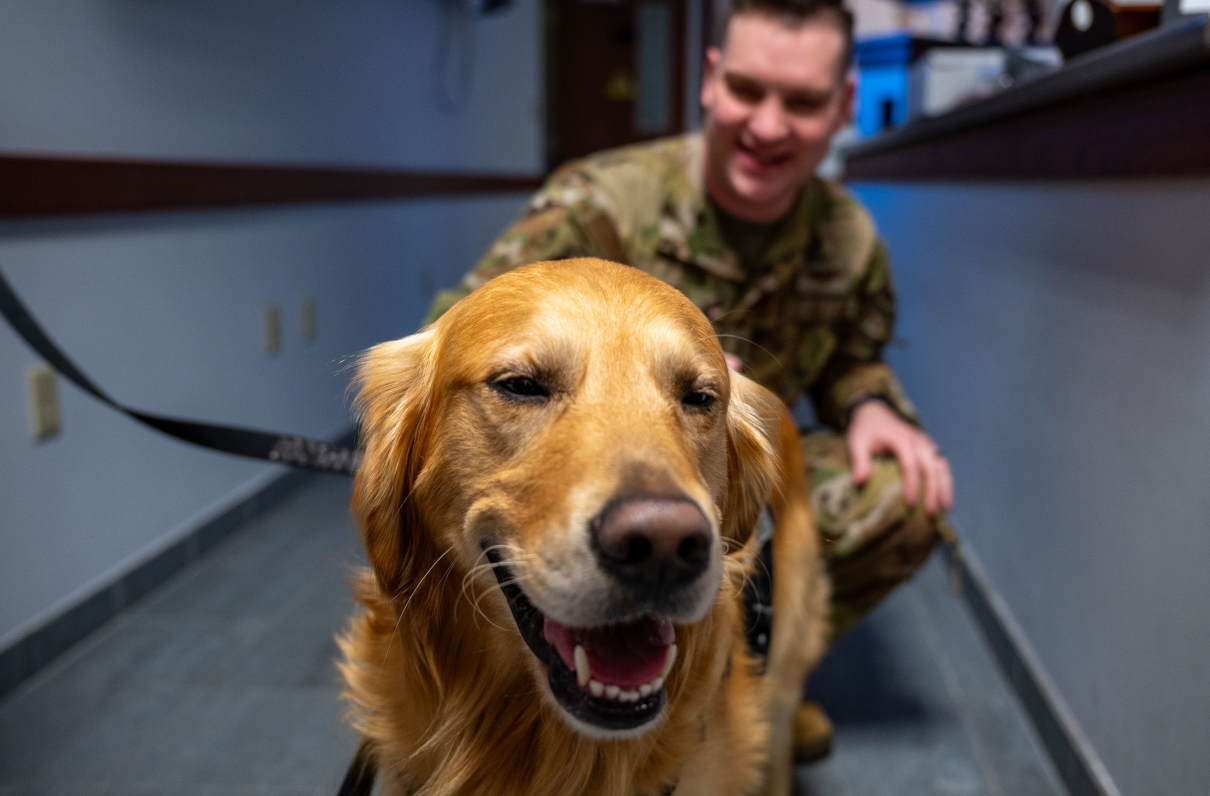This article by Kyle Alvarez originally appeared on Stripes.com. Stars and Stripes serves the U.S. military community by providing editorially independent news and information around the world.
Airmen and guardians seeking reimbursement for bringing pets with them to a new military duty assignment now have a list of the documentation needed to make that happen.
An Air Force statement Thursday lays out how personnel can receive compensation for those expenses, which are covered up to $550 for permanent changes of station within the continental U.S. and up to $2,000 for moves outside the continental U.S.
Pet transfer costs eligible for reimbursement include mandatory microchipping, boarding fees, hotel service charges, licensing fees at the new installation and air travel.
To receive repayment for such expenses, service members must be on PCS orders. The eligibility period started Jan. 1.
[RELATED: Military Families Will See a Boost in Separation Pay in 2024]
In addition, itemized receipts are required indicating that they are for one pet. The pet’s name should be included if possible, particularly if the expense is for individualized care such as vaccinations.
Pets that travel in cargo because they’re heavier than the government limit must have their weight listed on the receipt.
If service members choose to buy their own airline ticket at a place where Patriot Express service is available, they need to get a “non-availability letter” and have specific notes on their travel orders authorizing them to fly with a commercial carrier.
In the absence of these items, airmen and guardians will be reimbursed only up to the amount it would have taken to send their pet through Patriot Express.
[RELATED: ‘A Victory for All Military Spouses’ in Court Fight Over Job License]
Costs for shipping pets on the government-contracted Patriot Express are based on a sliding scale according to the animal’s weight. Commercial options tend to be more expensive, and costs can vary greatly.
Service members who fly their pet on a commercial carrier must also include all the paperwork they used to get the non-availability letter when they submit their travel claim after moving to a new station.
Compensation for the expenses of taking pets along for a PCS was granted in last year’s National Defense Authorization Act. The policy covers one household pet, either a cat or a dog.
Although the law authorized up to $4,000 per pet for transportation to and from overseas, the Defense Department set the maximum at $2,000.
In announcing the new reimbursement policy last year, the Pentagon did not say why it had set the limit at half the allowable amount.
Save on Pet Insurance With MOAA
Members can save up to 10% on premiums. Find out what coverage plans are available.
